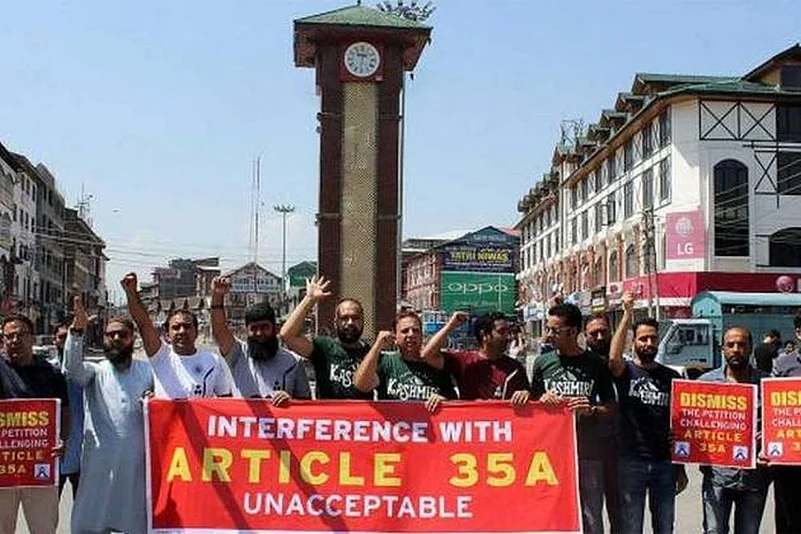Regarding the listing of petitions that seeks to challenge the constitutional validity of Article 35-A, which provides special rights and privileges to permanent residents of Jammu and Kashmir, the Supreme Court on Tuesday said that it would take an "in-chamber" decision.
Advocate Bimal Roy Jad mentioned the matter before the bench headed by Chief Justice Ranjan Gogoi and also comprising Justices L Nageswara Rao and Sanjiv Khanna.
He sought urgent hearing of the petition, filed by 'We The Citizens', saying the court had earlier ordered listing of the matter in the second week of January.
In August, the apex court adjourned hearing on a batch of petitions challenging Article 35 A till January this year, after taking note of submissions of the Centre and the state government that there was a law and order problem in the state.
Advertisement
What is Article 35-A?
Article 35-A deals with empowering the Jammu and Kashmir Constitution to define “permanent residents” of the state.
It also empowers the Jammu and Kashmir Legislature to confer on permanent residents or state subjects special rights and privileges in public sector jobs, acquisition of property in the state, scholarships and other public aid and welfare.
It sought to replace and replicate a state subject law from the Dogra times, which Maharaja Hari Singh had promulgated In 1927 after a campaign from the influential Kashmiri Pandits who were apprehensive of the hiring of Punjabis in civil service and administration.
Advertisement
It was added through Constitution (Application to Jammu and Kashmir) Order, 1954 issued by the President of India (Rajendra Prasad) on aid and advice of Jawaharlal Nehru cabinet.
The order followed the 1952 Delhi Agreement between Nehru and the then Prime Minister of J&K Sheikh Abdullah, which extended Indian citizenship to the ‘State subjects’ of J&K.
The J&K constitution, adopted on November 17, 1956, defines a permanent resident as a person who was born or settled in the state before May 14, 1954, or who has been a resident of the state for ten years and has lawfully acquired immovable property in the state.
with PTI inputs




















